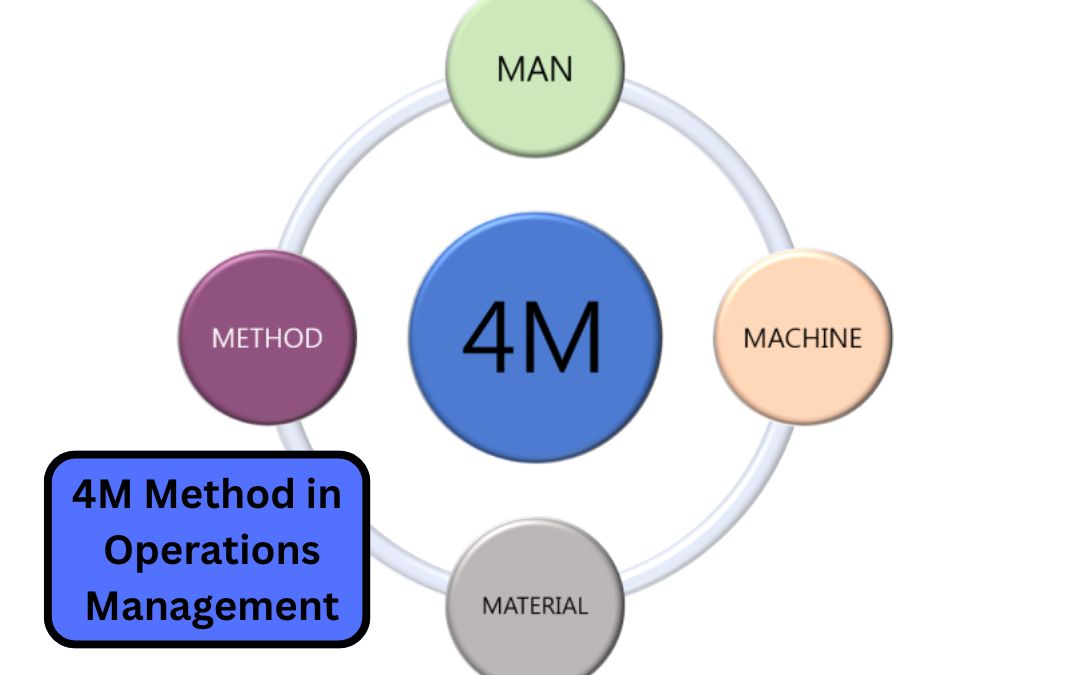To succeed in today’s fast-changing business environment, companies must work smarter, not just harder. Having a clear strategy and executing it efficiently is key. This is where Operations Management and Project Management play vital roles.
While both aim to improve performance and productivity, they are not the same. They serve different purposes, require different skill sets, and deal with different kinds of work. Understanding how they differ—and how they can work together—helps businesses run more smoothly and achieve long-term success.
What is Operations Management?
Operations Management is about handling the day-to-day work that keeps a business running. It involves planning, organizing, and controlling the processes used to produce goods or deliver services.
Key Responsibilities:
- Managing the supply chain
- Supervising production activities
- Maintaining product quality
- Controlling inventory levels
- Improving efficiency through process improvements
The main goal of operations management is to deliver value to customers efficiently and consistently while minimizing waste and reducing costs. This ongoing function supports the entire business, ensuring everything runs as it should.
What is Project Management?
Project Management is about planning and managing a temporary task or goal—a project—with a clear beginning and end. It’s used when a company needs to create something new, such as a product, service, or system.
Key Responsibilities:
- Setting project goals and scope
- Creating timelines and deliverables
- Managing risks and unexpected issues
- Coordinating communication between teams and stakeholders
- Ensuring the project is completed on time, on budget, and to quality standards
Projects are one-time efforts designed to bring change or innovation. Once completed, the project is closed, and the focus may shift back to operations.
How Are Operations Management and Project Management Connected?
Though different, these two areas often overlap. For example:
- When a company launches a new product, the project team handles the development while the operations team prepares to deliver it at scale.
- When updating a business system, project managers oversee the implementation while operations managers ensure the system runs smoothly afterward.
Shared Focus Areas:
- Budget Management
- Scheduling
- Team Coordination
- Skill Development
Operations and project managers often need to work closely together to align their efforts with business goals.
Operations Management vs. Project Management: Key Differences
| Area | Operations Management | Project Management |
|---|---|---|
| Nature of Work | Ongoing and repetitive | Temporary and unique |
| Main Goal | Maintain efficiency and meet regular customer demand | Deliver specific outcomes within set timeframes |
| Focus | Process optimization and continuous improvement | Scope, timeline, and cost management |
| Scope | Company-wide, across all departments | Specific project or objective |
| Responsibility | HR duties, team management, and operations planning | Project team leadership and coordination |
| Tools Used | ERP systems, lean techniques | Gantt charts, risk matrices, scheduling software |
Similarities Between Project and Operations Management
Despite their differences, both areas aim for efficiency, quality, and meeting goals. Here’s what they have in common:
- Both use resources wisely to get the best results.
- Both rely on teamwork and communication.
- Both require planning, organizing, and monitoring.
- Both deal with risk management and quality control.
- Both align their actions with the company’s overall strategy and goals.
Recognizing these similarities can help teams collaborate more effectively, improving performance across the organization.
Staff & Skills Management
In Operations Management:
- Responsible for hiring, onboarding, and assigning staff
- Handles leave approvals, attendance, and general HR tasks
- Manages team performance across all daily activities
In Project Management:
- Oversees project-specific performance
- Doesn’t handle HR tasks like hiring or firing
- Report any performance issues to the operations manager
Both roles require leadership and communication skills, but their responsibilities vary depending on whether the focus is on everyday work or a specific project.
Skills Required
Project Managers:
- Strong in planning, time management, and risk handling
- Need excellent communication and budgeting skills
- Often pursue certifications like PMP (Project Management Professional)
Operations Managers:
- Skilled in process analysis, cost control, and quality improvement
- Must know techniques like lean manufacturing or Six Sigma
- Require strong leadership to manage teams and workflows
Conclusion: Why Both Roles Matter
Operations managers keep the business running. Project managers drive change and innovation. One focuses on stability, while the other handles transformation. Together, they make a powerful combination.
To be effective, project managers rely on operations teams for resources and support. At the same time, operations managers count on projects to bring in improvements and upgrades.
Both roles are essential to achieving a company’s strategic goals. By working together and understanding each other’s responsibilities, they help businesses grow, adapt, and succeed.
FAQs
1. Are operations management and project management the same thing?
Not exactly. While both aim to improve performance and achieve business goals, operations management focuses on ongoing, repetitive tasks, whereas project management is about completing temporary, one-time objectives with clear deadlines.
2. Which role is more important: operations manager or project manager?
Both roles are equally important but serve different purposes. Operations managers keep the business running efficiently every day, while project managers lead change and innovation through focused initiatives. Together, they support the company’s overall success.
3. Can a project manager become an operations manager or vice versa?
Yes, many skills overlap, such as planning, communication, and leadership. However, moving between the two roles may require additional experience or training, as the nature and goals of each role differ.
4. Do operations managers handle projects too?
They may oversee small projects related to improving daily processes, but larger or strategic projects are usually managed by dedicated project managers. Operations managers focus more on maintaining performance over the long term.
5. How do these roles work together in a company?
Project managers create or improve systems, and operations managers run and sustain them. For example, if a company launches a new product, the project team handles development, and the operations team ensures it’s delivered to customers efficiently.
6. Is project management only for the construction or IT industries?
No, project management is used across industries—including healthcare, education, marketing, and manufacturing. Any task with a clear start and end can be treated as a project.
7. Who is responsible for staff performance: the project manager or operations manager?
Operations managers handle hiring, performance reviews, and team management. Project managers focus only on the project-related work of team members, but report any issues to the respective department heads.
8. Which is more stressful: project management or operations management?
Both can be challenging. Project management often involves tight deadlines and shifting priorities. Operations management deals with maintaining daily consistency and solving unexpected issues. The stress level depends on the work culture, industry, and support systems in place.
9. What tools do project managers and operations managers use?
Project managers often use tools like Gantt charts, project scheduling software, and risk matrices. Operations managers use ERP systems, inventory management software, and dashboards to track ongoing performance.
10. How can I decide which career path is right for me?
If you enjoy structure, timelines, and managing change, project management might suit you. If you prefer routine, efficiency, and improving everyday systems, operations management could be a better fit. You can also explore both and specialize later based on your strengths.












